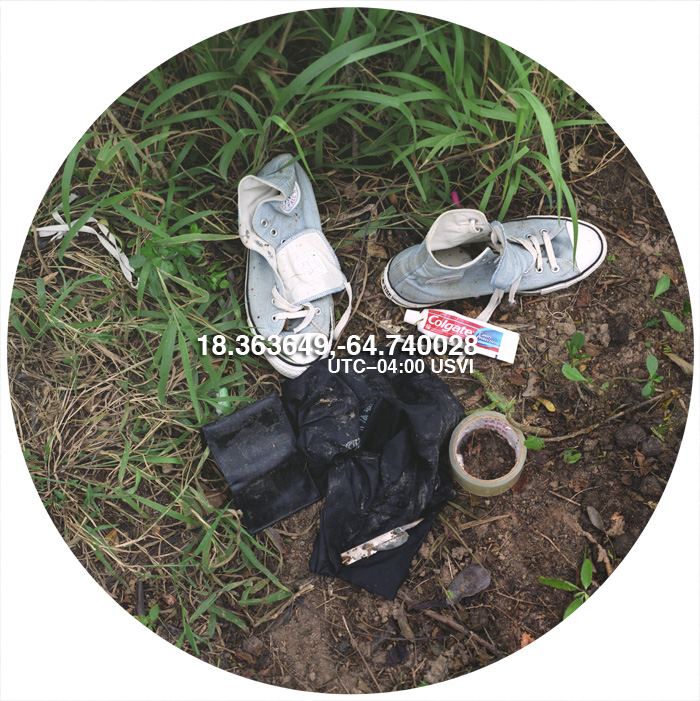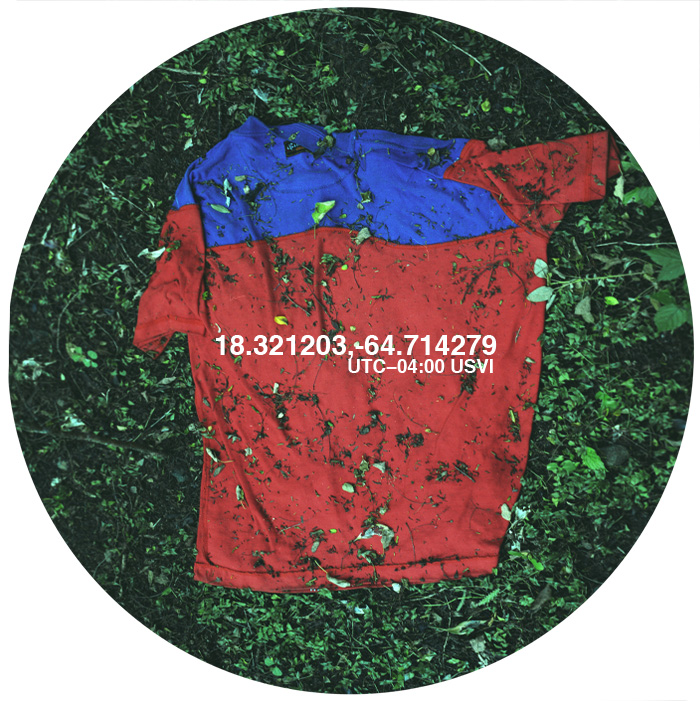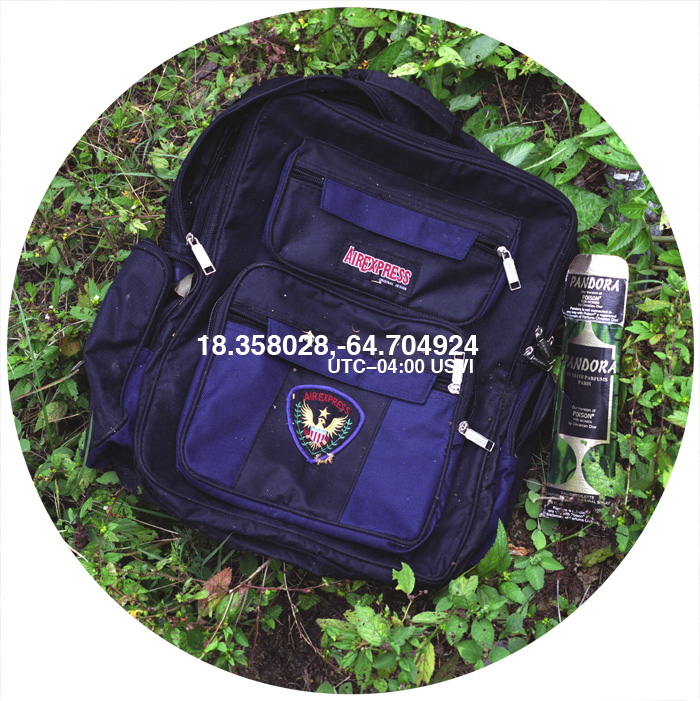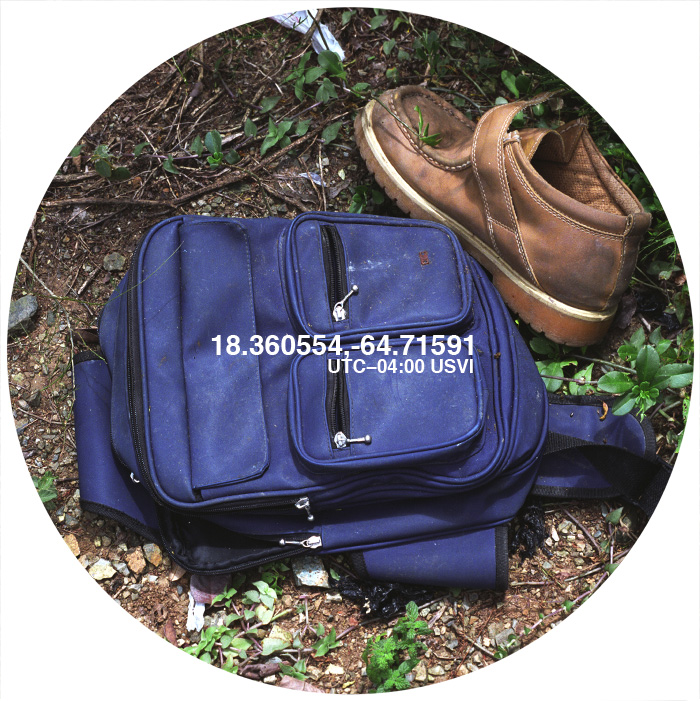
BonDieuBon / Research on migration
“Bon Dieu Bon” (God is Good), is a term used in Haiti to express the hope that even under the present circumstances a person can find a solution to the specific problem(s) that affect him in that specific moment. Although “Bon Dieu Bon” could be perceived as solely an expression of people’s hopes it is simultaneously an act of submission to the circumstances, implying an external solution to the concrete problem; the solution is exogenous. The original project “Bon Dieu Bon” is centered on the process of immigration to the US Virgins Islands, but the project also includes the historic and social contexts of Haiti and the relations between Haiti and the Dominican Republic.
Immigration to the Virgin Islands. Immigrants enter the islands at night in areas less illuminated by artificial light. They swim to the shore, performing the last action of a journey that led them through a series of islands in the Caribbean. Hiding behind bushes, the immigrants find themselves wet, fearful, and disoriented. In that state they abandon, forget, or lose clothing, letters, photographs, and other objects. With the break of daylight they will take predetermined paths searching for a public phone, information, or sometimes a face that looks familiar, the face of another immigrant to obtain some orientation and hopefully support.
The objects left by the immigrants are the source for an archive about transit, physical movement, and simultaneously about social movements in the Caribbean; these stories are narrated though material culture. Elements that repeat in the archive are the portrait photographs, found in wooded areas, near the shore or on the side of trails. These images are the markers of the migratory process and the transformation that the immigrants and the photographs suffer together during the migratory process due to the exposure to natural agents like the salt, the water, the rain, the sun, etc. The portraits become witnesses of the physical and psychological effects of the trip; a metaphor of an identity in transformation.
Carry On: The Backpack. The archive contains an abandoned backpack found in the US Virgin Islands, belonging to a Haitian immigrant containing 18 groups of articles. From the beginning the idea was to return it to the owner, that search led us several times to Haiti.
Each object of the backpack was individualized, archived and numbered to create an archive. An attempt was made to recreate the context, analyze the origins and to investigate the symbolic aspects and potential meanings of each object, where the result is expressed in visual, written or audio form. The purpose of this re-contextualization is to broaden the reflection about the relation of the material culture to Haitian realities and the Diaspora. Research into complex social historical aspects such as politics, race, and economics were integral to this process. The archive abandons its passivity in attempting not only to situate the peoples’ movement but reflect on larger historical processes of exclusion, disenfranchisement, and disempowerment. Part of the project “ Carry On” in search of Ulysses. / Aquin - Haiti








